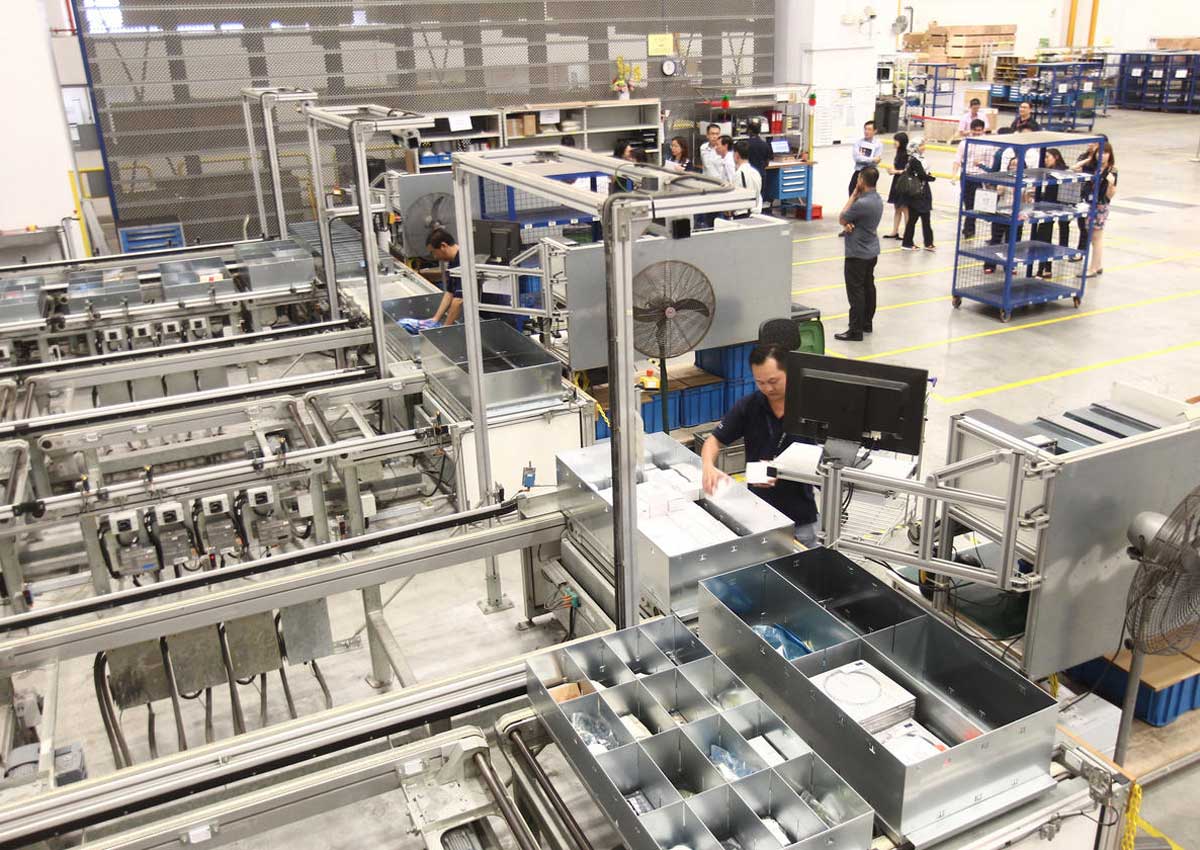Singapore’s small and medium-sized enterprises (SMEs) are taking a hit from China’s economic slowdown and many are hoping to receive financial help from thegovernment’s 2016 budget, due later Thursday.
Finance Minister Heng Swee Keat has said that this year’s budget will have a “strong focus on the economy,” fueling expectations that new measures would be geared toward boosting economic growth and helping local companies increase revenues.
That would be good news for companies such as Berlitz Offshore & Marine Group, which has seen revenue shrink due to a dearth of new orders amid the decline in oil prices. The privately-owned business, which mainly charters vessels for offshore construction activities, saw charter rates drop by as much as half in the past year, with revenue declining by more than 20 per cent.
Berlitz’s CEO Chan Kern Miang has some clear ideas about what his business needs from the budget: “I would like to see the government giving financial assistance, because right now, the banks are very scared of lending, especially to those in the oil and gas sector.”
Manufacturers are also feeling the pain from external headwinds. The sector, which makes up a fifth of Singapore’s economy, experienced a 5.2 per cent decline last year, compared with a 2.7 per cent expansion in 2014, according to a report by the Ministry of Trade and Industry Singapore.
John Cheng, who runs his family’s sugar manufacturing business, Cheng Yew Heng Candy Factory, said that he has noticed an as much as 30 per cent slump in customer sales this quarter compared with a year earlier. But the 34 year-old owner is still keen on investing in automation to raise productivity.
“What I think is lacking right now is the additional boost in terms of funding. The government gives up to a 70 per cent subsidy on project costs, so the other 30 per cent, we actually need to fund that,” he said.
“But for us to do so in this economic climate, we actually need a lot of cash flow so we hope the government can ease on tax, give us tax rebates or tax reliefs so that can encourage companies to embark on this kind of innovation,” he said.
Boosting productivity
Hopes that the government will help out small businesses aren’t just a pipedream.
According to Richard Jerram, Chief Economist at the Bank of Singapore, SMEs could be getting some incentives in this year’s Budget, targeted at helping companies increase output.
“In an economy where there is a persistent labour market squeeze, high productivity growth is obviously one way of overcoming tight labour market conditions, so you would expect to see subsidies to try to perhaps adopt more technology or to increase the skills of the existing labour force,” Jerram said.
The city-state has a population of only around 5.5 million people, with around 20 per cent expected to be over the age of 65 by 2030. A recent backlash against immigration has slowed the inflow of foreigners to supplement the working population. That’s put the squeeze on companies’ hiring plans.
But despite the government’s aggressive push to restructure the economy, productivity growth – measured by the value added per worker – remained sluggish at negative 0.1 per cent last year. That compares with the national target of 2 to 3 per cent growth annually.
However, Berlitz’s Chan feels it’s more important to focus on getting past short-term challenges as opposed investing in technology for returns over the long haul.
“You talk about how to improve operations of a vessel, adding more technical gadgets; I really doubt how helpful that is for SMEs. Even if it is helpful, the SMEs are more concerned about what is in store for them in the present, the survival mode,” Chan said.
Seeking growth beyond Singapore
The annual budget comes at a challenging time for the economy. Just last week, private economists polled by the Monetary Authority of Singapore trimmed their growth expectations for the city to 1.9 per cent this year, compared with December’s forecast of 2.2 per cent.
Even though both Berlitz and Cheng Yew Heng Candy Factory told CNBC that the government’s policies have significantly helped SMEs grow their business, they were also concerned over limited room for domestic growth, and the need to expand aboard.
“The Singapore market is really small. I think more can be done in terms of collaborations between foreign and local companies and government agencies can help with establishing the right connections and partnerships,” Cheng said.
But Berlitz’s Chan said that the challenge is not being adequately informed about the various measures that are available.
“If you want to expand overseas, the government has various schemes to help you, but I just wonder how many SMEs know about these schemes and how to apply,” he said.
<img src="http://www.asiaone.com/html/images/logos/CNBC_resized.jpg" border="0"







